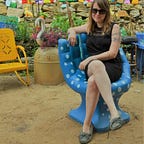How We’ll Afford To Worldschool
There is no defined point of financial readiness. Some worlschooling families are content to sell their home and belongings and embark on their journey with zero material ties. I admire that. And while ideologically our family is smitten with minimalism, pragmatically, our adventure requires a parachute. There are thoughts on readiness that range from “You’re never ready, just go!” to a down-to-the-penny budgeted approach, and we fall somewhere in between. We were not ready 2 years ago. We were not ready 1 year ago. But this year, we have achieved a feeling as close to “ready” as imaginable because we are prepared for potential curveballs and flubs. We’re at least comfortable.
In August 2019, 7 days before our son joined our family, we bought our first house in Pittsburgh, PA. This provides us with foundation to return to should our voyage take a insurmountable twist and it also serves as an appreciating investment (our real estate value has increased almost 10% in 2 years!). We will rent it out during our travels to continue to build our assets and earn a supplemental income. We’ve also simply fallen in love with our home and the community that our children have grown in and couldn’t imagine parting with it so soon. So for us, completely ditching all debt became too radical of a risk to our safety net. We needed lots of contingencies and a home-base to leverage our security. For us, once the finances started to fall into place, we could begin to make other decisions that kept the ball kept rolling. It was also the longest part of preparation in becoming a nomadic brood.
“TRAVEL IS THE ONLY THING YOU BUY THAT MAKES YOU RICHER.”
— ANONYMOUS
Here is a list what we did over the last 2 or so years:
- Bought a home. This guarantees a safe place to come back to and hopefully will earn extra cash to fund the trip(s). If we can’t rent our home, we will find housesitters.
- Paid off all debt. We will leave with a mortgage (which we plan to cover through tenancy) and student loans (which we are covering through deferment and affordable income-driven plans). We have no credit cards, no car or other loans, no medical bills, etc. To build wealth you have to owe as little as possible first.
- Diversified investments. We own a home and car. We are maxing out 401k contributions according to employer match. We invest in slow-growth, but low-volatility ETFs. We are funding 529s for the kids. We will pad our high-interest savings account with about six months worth of regular salary. This all falls into the umbrella of an emergency fund. Don’t put all your eggs in one basket, as they say.
- Found remote work. Jim is a Systems Engineer which allows us to earn a US paycheck from anywhere. I will quit my job in health administration and begin my Masters degree shortly after we leave. I might find something part-time, too, but that’s because I’m the kind of person who needs to work.
- Made lifestyle changes. COVID really took care of this one for us. Basically, live like COVID times for a few years and those are the changes needed to save money. Forgo Starbucks and pilates in favor of going to France.
- Stashed cash. We literally have a piggy bank that over a few years has collected enough change to cover a couple emergency hotel nights. This will be enough to cover tolls throughout out journey.
- Became entrepreneurs. We likely won’t do much of this outside of blogging, but many traveling families are funded by multiple streams of creative side hustles. Etsy. Ebay. Phone sex. Whatever.
- TIP: Start somewhere inexpensive. You’ll have to read on for our locale reveal, but this is self-explanatory. Don’t bust out and splurge on Geneva when you can get an equally valuable experience in Guanajuato. Look at in-country budgets and you’ll learn where you can stay for longer. One month in the US is equal to 5 in Argentina.
Our dinner table conversations around our family’s economic state are a perfect introduction to the practical matters of money. We often discuss the differing values of currency around the globe based on what a country can export and the market for its goods. This talk can’t naturally happen without a dialogue on poverty and its varying causes depending on the current climate of a country. And now our six year old conceptually understands budgeting. She can tell me when a rental I’m looking at costs too much if I’ve defined a baseline. This is a life course in economics, geography, sociology, justice, math and logic.
And this was the first step in what I consider a necessary element to worlschooling: creating a financial strategy. The first action; the first exciting to-DO to check off. Arm yourself with enough knowledge to make logical decisions that support your travel dreams long-term. This is what will get you out the door.
